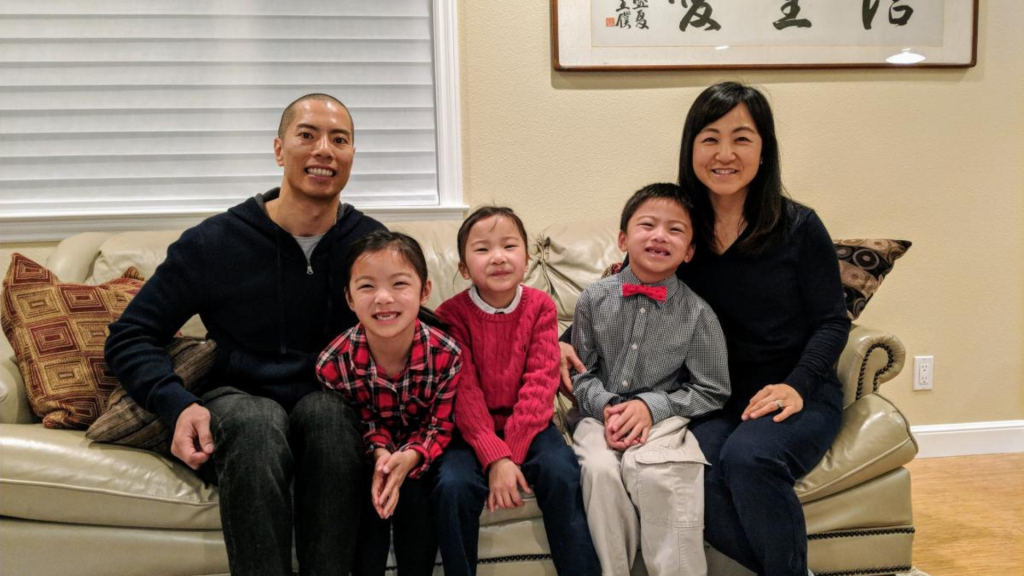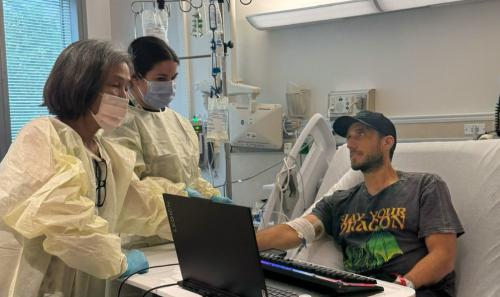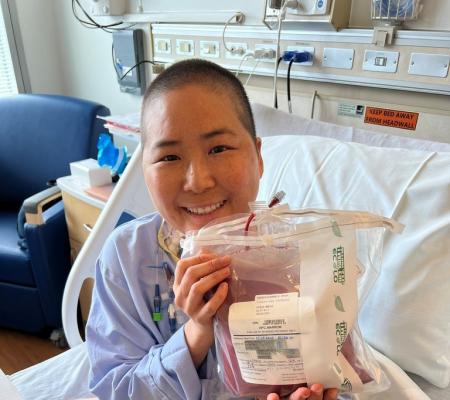
-
Understanding primary immunodeficiency (PI)

Understanding PI
The more you understand about primary immunodeficiency (PI), the better you can live with the disease or support others in your life with PI. Learn more about PI, including the various diagnoses and treatment options.
-
Living with PI
-
Addressing mental health
-
Explaining your diagnosis
- General care
- Get support
- For parents and guardians
-
Managing workplace issues
- Navigating insurance
-
Traveling safely

Living with PI
Living with primary immunodeficiency (PI) can be challenging, but you’re not alone—many people with PI lead full and active lives. With the right support and resources, you can, too.
-
Addressing mental health
-
Get involved

Get involved
Be a hero for those with PI. Change lives by promoting primary immunodeficiency (PI) awareness and taking action in your community through advocacy, donating, volunteering, or fundraising.
-
Advancing research and clinical care
-
Research Grant Program
-
Consulting immunologist
-
Diagnosing PI
-
Getting prior authorization
-
Clinician education
-
Survey research
-
Participating in clinical trials

Advancing research and clinical care
Whether you’re a clinician, researcher, or an individual with primary immunodeficiency (PI), IDF has resources to help you advance the field. Get details on surveys, grants, and clinical trials.
-
Research Grant Program

Meet the Wu Family
Richard and Sy Wu are parents to triplets, from left, Lauren, Emily, and Jason, born in November 2011. Doctors diagnosed Jason with X-linked SCID through newborn screening and he was treated with a hematopoietic stem cell transplant.
What overall advice would you have for parents as they embark on their lives caring for a child with SCID?
Jason received a stem cell transplant with me as his half-matched donor when he was approximately 8 weeks old.
My advice would be to seek some type of support — family, friends, online Facebook SCID or SCID Angels. Be a gracious receiver and allow others to help you, whether it's meals or dropping off groceries. I am not a gracious receiver. I don’t like asking for help, but I was really forced to, whether it was people dropping things off or giving us hand-me-downs. I had to learn I can’t control this. Take the help and it’s OK. It doesn’t mean you’re weak, it’s just a situation you can’t control.
Initially, we used our family and friends for support. We had meals delivered to us for about five months and our in-laws lived with us for six months. I think not having to worry about meals or childcare (for our two other children) allowed us to focus on Jason.
What was the most challenging aspect of slowly introducing your child “to the world”?
We spent almost one year in isolation, so our biggest fear was all the "what if" scenarios. We wanted Jason to have normal experiences, but were terrified he might become sick.
We were very lucky. UCSF is close by and all of our immediate family members were local so we had a lot of resources to help out.
What advice would you give to parents as they enroll their child in daycare or a school setting?
I would advise to have good communication with the school/daycare from the beginning. Help the providers to be informed and aware of the serious nature of the immune deficiency. Work together to come up with a plan and guidelines. Provide written information if necessary. IDF has wonderful resources.
I just put a 504 Plan in place this year for Jason, but they were aware of his conditions.
What was it like for you as a parent to eventually return back to work?
I am a stay-at-home mom. My husband shares that even upon returning to work, Jason's health and needs were his top priorities.
What advice would you give to parents about long-term follow-up care?
I cannot stress enough the importance of continued follow-up. We make sure Jason is seen annually by his regular pediatrician, and by the bone marrow transplant team and/or immunology team at UCSF. We want to be sure that we are doing everything possible to optimize his health, which is assessed through in-person evaluations and labs.
That was ingrained in us. Please make sure you don’t just drop off the radar. You can’t feel what’s going on with the labs (bloodwork). You don’t always know.
Is there anything else that you’d like to share concerning day-to-day life with a child affected by SCID?
Jason is aware that he has SCID, and is starting to have more questions about his condition. He is conscious that he is asked to wash his hands more frequently and allowed to keep hand sanitizer at his desk. We address his questions and concerns the best we can, and will continue to do so in the future.
On a day-to-day basis, Jason is just our typical 8-year-old boy in every way — enthusiastic, energetic, and adventurous. I am continually amazed and thankful for Jason's resiliency and spirit. He is my brave SCID warrior.
Find more information
Severe combined immune deficiency (SCID) is a life-threatening primary immunodeficiency (PI), with a combined absence of T cell and B cell function. There are at least 20 different genetic variants that can cause SCID.
Learn about SCIDRelated resources

Man with X-linked hyper IgM first-ever to receive novel gene therapy

Pharmacist with CVID receives bone marrow transplant

Undiagnosed: Reuben & Sherri Johnson on CGD, chronic illness, and the fight for healthcare
Sign up for updates from IDF
Receive news and helpful resources to your cell phone or inbox. You can change or cancel your subscription at any time.





The Immune Deficiency Foundation improves the diagnosis, treatment, and quality of life for every person affected by primary immunodeficiency.
We foster a community that is connected, engaged, and empowered through advocacy, education, and research.
Combined Charity Campaign | CFC# 66309

